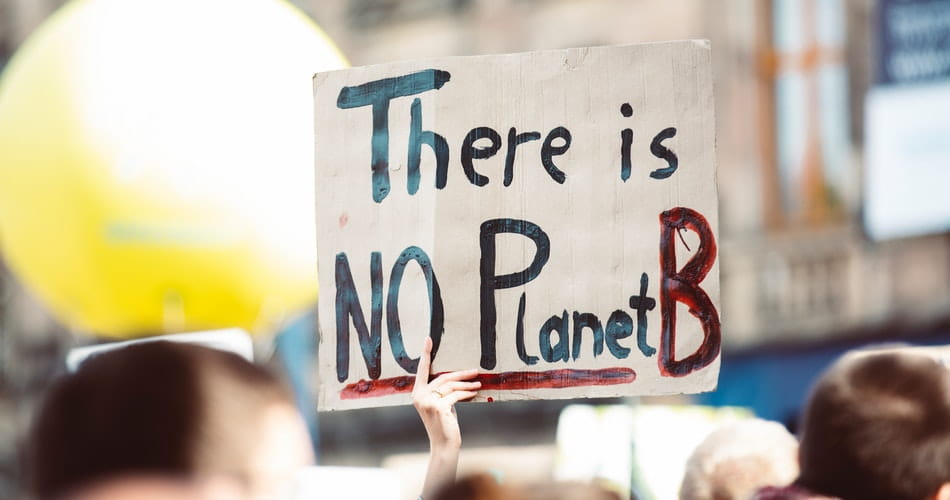Businesses have several duties to perform when it comes to taking care of their customers and society. A good business has a policy that makes it contribute positively to the world rather than degrading it. In other words, businesses have a social responsibility to people. CSR or corporate social responsibility is a model that helps businesses be socially responsible and accountable to themselves, their people, and their sharers.
In this article, we discover corporate social responsibility definition in detail, along with some examples. In addition, you will also go through some corporate responsibilities that your business can follow.
What is Corporate Social Responsibility CSR?
CSR stands for corporate social responsibility and is a model that helps small and large businesses engage in different activities that help the society and environment in a positive way. CSR initiatives strive to make positive changes to the world and the environment. In today’s world, customers and stakeholders prioritize businesses that practice social responsibility compared to those that don’t.
Examples of CSR objectives include minimizing environment-related issues, promoting volunteerism among company employees, and making donations to charity.
What is the Purpose of Corporate Social Responsibility?
CSR programs have been more common among large corporations, but small businesses are now also engaging in CSR through smaller-scale programs such as donating to local charities and sponsoring local events.
The main purpose of corporate social responsibility is to add positive changes in society, give back to the community, take part in philanthropic acts, and increase social value. Today, businesses are increasingly turning to CSR to make a difference and build a positive brand around their company.
Most companies consider CSR as a crucial part of their brand image, CSR helps companies believe that customers are more likely to do business with brands that they perceive to be more ethical. Therefore, CSR activities can be an important part of corporate public relations.
Benefits of CSR
CSR is a broad term that can involve various activities to become socially responsible. Doing so has many benefits, to both people and the company. Let’s see some of these:
Builds a Good Reputation
It should be the social responsibility of businesses to care for society and the environment instead of negatively contributing to it. If your organization cares for both society and the environment, it benefits your organization’s repute and its standing.
Doing that is a great way to gain public trust. For instance, by philanthropic work or by donating money, most people will think of your organization as trustworthy. Companies that engage in CSR are likely to stay in the industry for a long time as compared to those that don’t.
Builds Positive Relationships
CSR builds a healthy company-consumer relation and helps enhance it. It builds a relationship that surpasses the regular company-client relationship and develops a more genuine bond between both parties.
Builds Public Trust
Corporate social responsibility helps build public trust in a business. In fact, many people trust those businesses that are socially responsible towards the environment and society.
“88% of consumers said they were more likely to buy from a company that supports and engages in activities to improve society.”
– Better Business Journey, UK Small Business Consortium
Builds a Sustainable Future
Companies that engage in CSR, are striving to build a sustainable future. Think of it in this way, an organization that cares for the environment works for reducing carbon emissions, and saves non-renewable resources is likely to be standing in the long run. Customers prefer such organizations because of the efforts theyre making for the society and environment rather than adding negatively to it.
Helps Retain Employees
Employees like working for companies that have a good public image and are in the news for positive reasons only. When you engage in CSR, your chances of retaining your employees automatically increase. Employee retention in turn has other benefits for you. For instance, companies, where employee engagement is high, are 22% more likely to have profits.
Benefits Non-Profits
Companies that engage in corporate social responsibility are looking for nonprofits to receive their support in the form of donations, charity, and volunteering work. Corporate social responsibility initiatives help nonprofits find support beyond individual donors.
Types of Corporate Social Responsibility
There are various ways businesses can engage in CSR. Some corporate social responsibility examples are activities like:
Philanthropic Responsibility
Corporate philanthropy is one way to engage in CSR. In this, businesses promote the welfare of others, usually through charitable donations of funds. Other ways are through volunteer grants. As of 2019, corporates donated $26 billion to non-profit organizations.
Volunteering
If your organization supports local causes shoe the sincerity of it onward to the community. By helping others and expecting nothing in return is a great way to gain people’s trust when it comes to your business.
Environmental Responsibility
For companies, it is important to take measures to protect the environment. Engaging in CSR, businesses should engage in environment-friendly activities such as controlling pollution, reducing plastic waste, recycling, using renewable resources, and reducing carbon emissions.
Environmental responsibility can be different for different-sized businesses. For instance for small organizations cutting down plastic use may be a solution while for bigger organizations, company-wide environmental practices should be practiced.
Being Ethical
Being ethical in all doings is another corporate social responsibility, which means being fair in everything you do. This also includes treating your clients and employees with respect and being genuine n your dealings with them.
Other examples can be offering your employees a competitive salary, offering benefits, and taking care of their needs within the organization. It also means fulfilling the promises you’ve made to your customers and being transparent with them. CSR helps build trust in your organization and by being ethical you can ensure that trust.
Responsibility Towards the Economy
Being economically responsible means taking care of where your money goes. This not only impacts your values as a company but also your employees and the well-being of the economy overall. Paying your employees competitive salaries and paying your taxes may be some of the ways to be economically responsible. Secondly, using materials and resources that don’t hurt the environment is also a way to be economically responsible.
Responsibility Towards the Law
Being legally responsible is just another way a business can show its people they are socially responsible. Fulfilling the lawful agreements, following the rules, and practicing only what is lawfully allowed by the government.
Socially Responsible Companies
For years Google has been working on becoming environmentally friendly and reducing its carbon emission. It’s working toward sourcing 24/7 carbon-free energy for all of its data centers and campuses around the world. By 2030, Google plans to have 24/7 carbon-free energy for its operations.
In 2020, Google issued $5.75 billion in sustainability bonds, the largest sustainability or green bond issuance by any company in history, to fund ongoing and new environmentally or socially responsible projects. To read more of their steps towards protecting the environment and society, see this sustainability report.
Apple
Apple is a renowned brand and for the past couple of years its been focusing on sustainably and making positive changes to the world. Like Google, Apple has planned on becoming carbon-free by 2030.
According to its sustainability report, the Taptic Engine in iPhone 11, iPhone 11 Pro, and iPhone 11 Pro Max is built from 100 percent recycled rare earth element a first for Apple and for any smartphone. Over 40% content of the Macbook is recycled.
Additionally, Apple was the only retailer to receive the top rating in the “Mind the Store” campaign for their work to eliminate harmful chemicals in products and packaging.
Coca Cola
Another brand that is doing it right is Coca Cola which has put a huge focus on sustainability and social responsibility. The company focuses on the highest-priority sustainability and environmental, social, and governance (ESG) issues. From their sparkling water to dairy, to refreshing soft drinks and natural juice, they offer over 200 brands worldwide. Along with that, reduced-sugar drinks and smaller packages are also a part of their sustainability plan.
According to its sustainability report, Coca-Cola aims to collect and recycle a bottle or can for every one they sell and make 100% of their packaging recyclable. Maximizing water conversion is just another goal on its list. It has set a target to reduce our carbon emissions by 25% by 2030 from a 2015 base year.
Netflix
Netflix is just another name that has contributed a lot to fulfill their social responsibility. According to its Net Zero + Nature plan, Netflix will achieve net-zero greenhouse gas emissions by the end of 2022, and every year thereafter. This includes plans to reduce emissions, remove carbon from the atmosphere.
Netflix is a great example of businesses that are practicing social responsibility especially in terms of having diversity and inclusion. And in terms of giving back to the community and the feeling of belongingness. If one thing that is sure is Netflix sure knows how to make the community feel at home.
Spotify
When it comes to supporting social causes both Netflix and Spotify raise their voices through their social media. Be it the Pride movement, Black Lives Matter, or the environmental crises, they’ve come forward to help the masses gain a voice.
Starbucks
Love Starbucks? You’ll love its sustainability efforts even more. According to its goal for 2030 50% of water withdrawal from direct operations and coffee production will be conserved or replenished, along with cutting down its carbon and waste footprints. Additionally, it also plans on providing more transparency on its current workforce diversity.
From 2015 to 2019, 99% of Starbucks coffee was verified as ethically sourced as measured by C.A.F.E.
Various programs are designed to promote transparent and sustainable coffee growing practices while also helping protect the well-being of coffee farmers and workers, their families, and their communities.
LEGO
LEGO’s stepping up its game by spending over $400 million for its sustainability efforts in the next 4 years. Not only do they plan on creating legos that are safe for children, but to minimize the environmental impact of its operations and have the ambition to make LEGO bricks from more sustainable materials by 2030 and its packaging 100% sustainable by 2025.
As a part of its social responsibility, LEGO advocates for the transformative power of play to be adopted in education and early childhood development around the world.
Taking D&I one step further, LEGO makes it its ambition to build a diverse and inclusive organization that helps it reach and inspire all children, regardless of who they are or where they come from.
The Walt Disney Company
Disney is committed to reducing its carbon emission, cutting down greenhouse gas, along with a goal to preserve water. Not just this, Disney implemented new policies to govern employee pay, leave, and benefits for those directly affected by COVID-19, along with responsible reopening strategies with health and safety protocols for employees, productions, and guests.
According to its 2020 CSR report, Disney provided nearly $27 million in in-kind support for communities across the globe, excluding PSA campaigns. Disney also harnessed the power of our storytellers and the reach of our channels to provide people with timely information, fun and engaging content, and support large-scale fundraising efforts.
All Set to Become a Socially Responsible Corporate?
Now that you know what corporate social responsibility is, it’s time you consider taking measures for protecting the environment, including diversity and equity for everyone, and for improving the living standards for people in every society. It’ll benefit not only the people but your organization as well.







